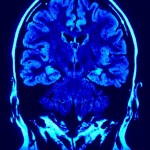Ode To My Central Sulcus
 In my time, I’ve certainly been accused of being a little different. The exact wording usually goes something like, “I’ve never heard anyone play/think of/say it like that before,” or “You are so original,” or “You’ve always been on the edge.” They don’t specify the edge of what. If I had a nickel every time I’ve been given the “lobsters crawling out of ears” look, I’d be rich.
In my time, I’ve certainly been accused of being a little different. The exact wording usually goes something like, “I’ve never heard anyone play/think of/say it like that before,” or “You are so original,” or “You’ve always been on the edge.” They don’t specify the edge of what. If I had a nickel every time I’ve been given the “lobsters crawling out of ears” look, I’d be rich.
Well, in my defense, I’d like to bring the following article, Science Shows How Piano Players’ Brains Are Actually Different From Everybody Elses’, to your attention. Jordan Taylor Sloan says people never recover from piano lessons and cites some research to prove it. Turns out, piano players brains are actually different than everybody elses’.
“Pianists had a demonstrably more symmetrical central sulcus than everyone else — though they were born right or left-handed, their brains barely registered it.”
So you see, my central sulcus is gorgeously symmetrical.
“Pianists, then, tend to integrate all of the brain’s information into more efficient decision making processes.”
Contrary to what those close to me may believe, I actually do employ efficient decision making processes. Actual end results obviously vary.
“…when experienced pianists play, they literally switch off the part of the brain associated with providing stereotypical responses, ensuring that they play with their own unique voice and not the voices of others.”
There’s that original, on the edge part. So there!
“…when pianists solo, their brains respond as if they were responding in a conversation, but they pay attention to phrasing and “grammatical” structure instead of specific words and phrases.”
This one is very cool because I have always had trouble putting together coherent sentences during/after deep practice sessions, rehearsals, and lessons. Coincidenza? I think not!


